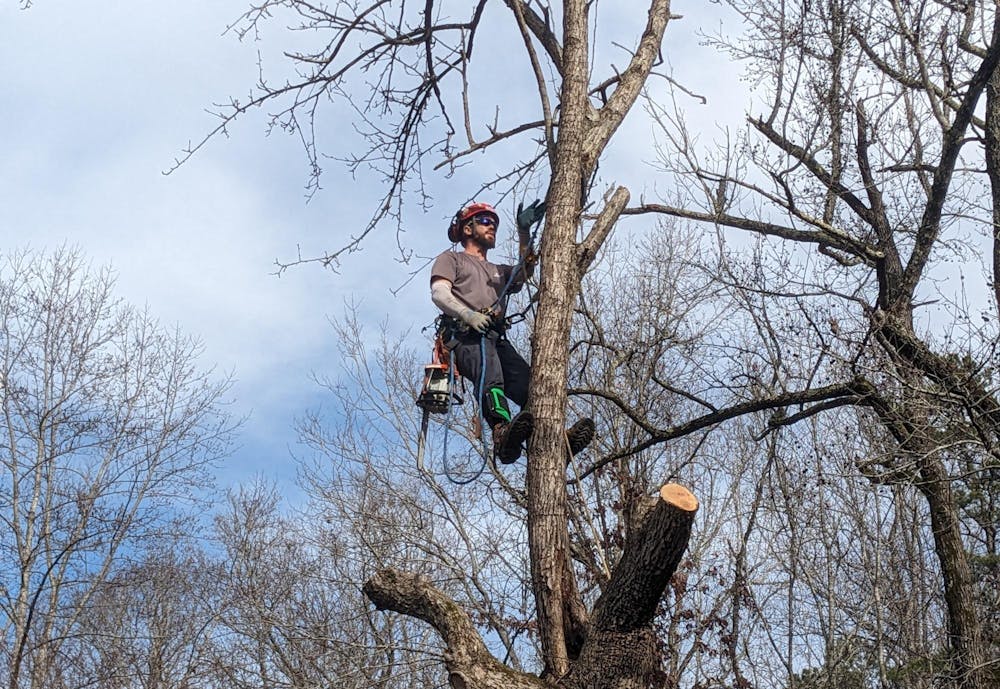According to the National Invasive Species Information Center, a part of the U.S. Department of Agriculture, an invasive species is defined as a non-native species to the ecosystem it's in and whose introduction causes economic, environmental or human health problems. The North Carolina Native Plant Society lists 38 plants under the highest threat category, as of 2023.
That’s where people like Jesse Breden come in.
Breden is the owner and operator of Knotty By Nature Trees and Knotty By Nature Natives, which is local to the Triangle area. He’s a certified arborist, his work mostly consisting of pruning trees and removing invasive species. He also recently started a native plant nursery, selling to residents of the area to replace invasive species on their property.
“When I moved to this area about three years ago, just seeing all these invasive trees that were planted in people’s front yards, you know, I start educating myself because the species were very different, and then educating the owners,” he said. “And once you start telling people that what they have is problematic, there’s actually a good response to that for the most part.”
He began by giving away free trees in exchange for a removed invasive species, like the bradford pear, a tree that has white flowers that smell awful when they bloom. Since he began, he said that he removes a lot of privet, holly, mimosa trees, chinaberry parasol trees and princess trees, as well as many other species.
Milo Pyne is a retired ecologist from Durham. He used to be on the board of the Eno River Association, and he said his superpower has always been how well he can identify plants, especially local plants. He has also always been aware of the prevalence of invasive species in his work of evaluating sites for the ecological value and integrity.
“What’s the worst invasive species? Well, it’s the one we haven’t found yet,” he said.
Another invasive plant is Chinese wisteria — a purple, flowering invasive plant species that can be seen all over Chapel Hill, especially down Martin Luther Kind Jr. Blvd. Sam Wright, a plant ecologist who owns a local environmental consulting firm, said that while the plant is pretty, he has seen trees that have been choked out by it. He said the Chinese variety blooms earlier than the native one, giving it an advantage.
“So, it’s kind of a way, some of these invasive plants that are dominant, they have these, these strategies that make them very successful,” he said. “So, that is one of them.”




